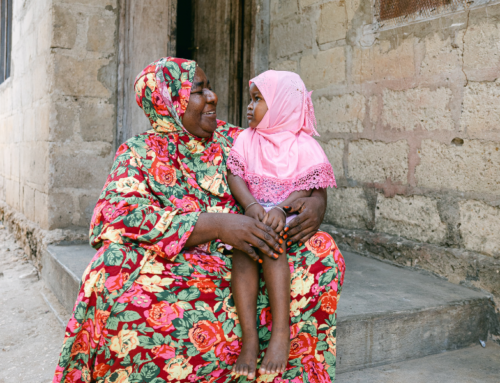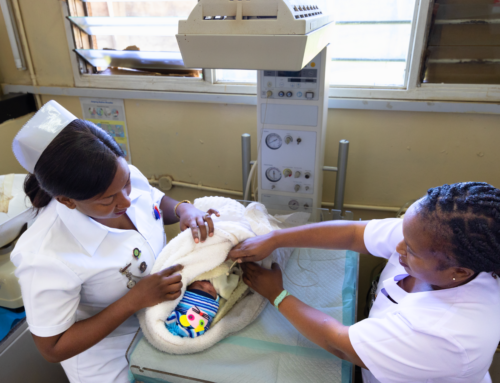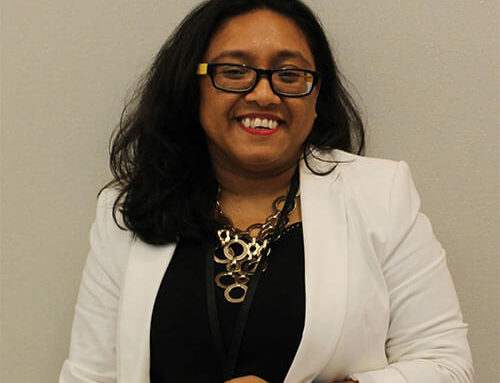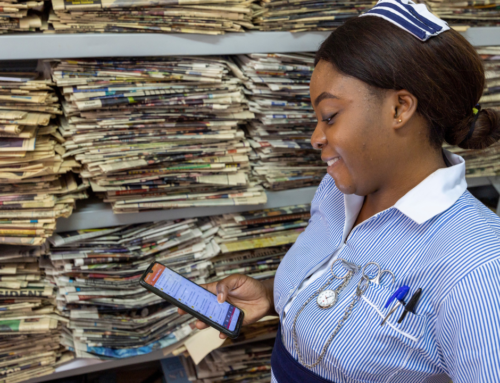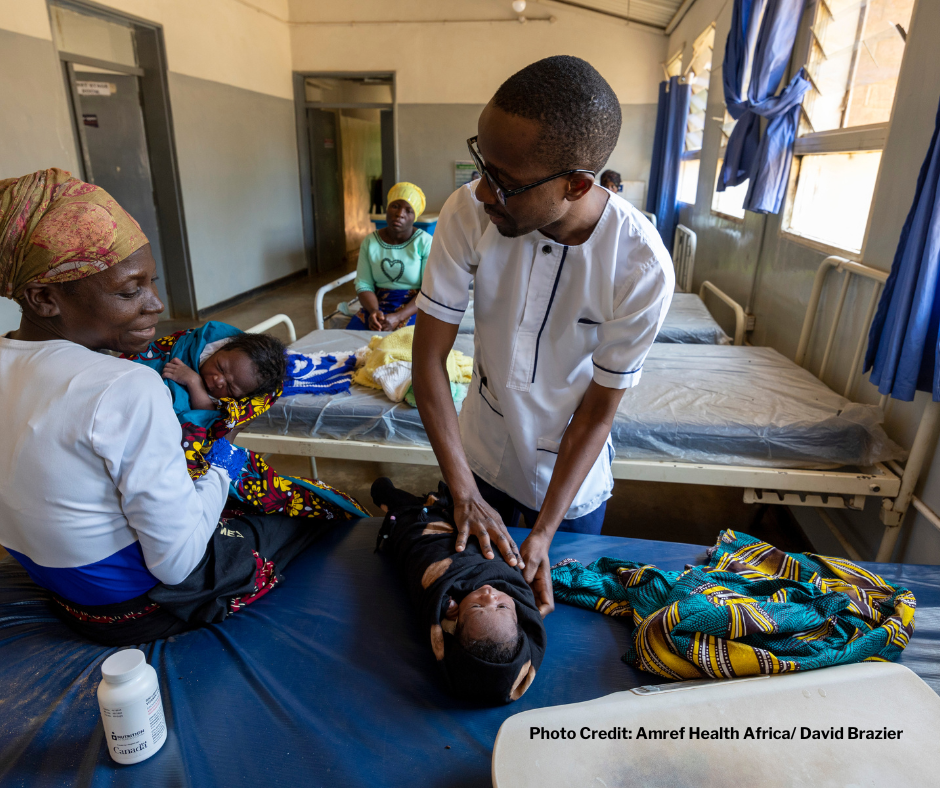
“Taking care of people has nothing to do with one’s gender.”
Meet Noel Siyaya, the midwife-in-charge at Chikwewo Health Centre in Machinga, Malawi, which serves a population of about 111,000 about 25% of whom are women of childbearing age. Noel has been working in this position for the past nine years; he is passionate about his work and is committed to making a difference in the lives of the women and children he serves.
One of the challenges faced by Noel and the women in his catchment area is the fact that the District Hospital is 90kms away from the Chikwewo Health Centre. Despite this distance, Noel works tirelessly to bridge this gap by providing various services to the women and children in the area, including: support to mothers in labour, conducting antenatal and postnatal checks, providing baby care advice with the support of experienced mothers as peers, helping prevent vertical transmission of HIV to unborn babies, etc. Noel’s days as a midwife are filled with a wide range of activities.
His focus on different segments of the population has seen Noel organize Thursday afternoon youth-friendly health sessions where the midwives at the health centre provide family planning services, advise youth on the risks of early pregnancy, treat sexually transmitted infections, provide PREP (HIV prophylaxis) to those at a higher risk of exposure, and provide mental health support and reproductive health information to expectant and new mothers.
Noel finds his work fulfilling and satisfying: “I feel good inside when I see a smile on my patient’s face, and it gives me an inner peace that I am able to help somebody at some point in their lives.” He adds, “No two days are the same in midwifery, which is one of the things that makes the job so rewarding.” And despite being a male midwife, Noel continues to receive overwhelming support from the communities around the health center.
He says, “Taking care of people has nothing to do with one’s gender.”
Noel’s dedication to his work has helped many pregnant women deliver safely at the health center. Noel recalls a time when he had to convince a first-time pregnant woman and her husband to go to the district hospital for a safe delivery: “It gave me great joy when they came back to thank me after being discharged.”
Noel’s passion for midwifery shines through in his work, and he is grateful for the opportunity to positively impact the lives of the women and children he serves.
Improving Maternal, Newborn and Child Health (MNCH) Services: Addressing Challenges and Providing Support
The lack of access to quality maternal, newborn and child health services significantly contributes to maternal and newborn mortality rates in Malawi. Chikwewo Health Centre is no exception, as it is not adequately equipped to serve the needs of its population of over 25, 000 women, starting with human resources: currently, only seven midwives work at the center.
“The centre has a shortage of midwives, yet these play a critical role in strengthening the health and well-being of women, adolescents, and newborns and put safe and effective care within the reach of more people in communities,” Noel says. Furthermore, the facility needs more equipment and training to fill the skills gap among the health workers.
But some important strides have been made. Recently, Amref Health Africa in Malawi and Water Aid worked together to improve the Water, Sanitation, and Hygiene (WASH) facilities at the Health Centre. According to Noel, this has made a marked improvement. “Previously, we did not have running water, but they helped us to install running water which has really helped. They also constructed toilets and placenta pits, which all contribute to MNCH since we cannot talk about infection prevention without water and good toilets.”
In his role, Noel also addresses the challenges of limited human resources at the facility to ensure that service delivery is not disrupted. “As a midwife in charge, I have been liaising with our maternity hospital to continue sending us new staff. And for the knowledge gap that we do have, we have introduced a mentorship initiative in which we meet and share experiences and encourage each member of staff to share whatever new knowledge they have gained regarding their field so that it benefits all of us.”
He added, “This is really helping us at the moment while we are waiting for proper refresher training because we know things are changing every day, and in today’s world where technology has taken center stage, we also want to be on top of our game in our work.”
The Direct Impact of Climate Change on Maternal, Newborn, and Child Health (MNCH) Services in Malawi
The climate crisis is hitting the African continent disproportionately hard, despite the fact that Africa is a very negligible contributor to the crisis. A topical example of this is Cyclone Freddy, one of the deadliest storms to hit southern Africa in more than two decades, which has left Malawi grappling with the lingering aftermath. The cyclone has claimed over 1000 lives, close to half a million have been displaced, and more than two million have been affected. Exacerbating this is another climate-related health crisis: Malawi’s cholera outbreak – one of the worst in its history.
Health systems are under intense pressure as resources are moved away from primary health care to meet the growing demand. This leaves MNCH services struggling and centres like the Chikwewo Health Centre and the population it serves, vulnerable.
According to Noel, “The cholera outbreak has affected our delivery of services. We already have a shortage of staff, so the cholera outbreak means the very same staff that are supposed to give services to mothers and their infants are now involved in providing care in the cholera treatment units. This is bringing a lot of workload for the health workers, which is also affecting service delivery.”
The fallout on the country’s health system will be felt for months to come and will erode many gains made towards sustainable health change.
The Promising Future of Male Midwives in Malawi
Noel is optimistic about the future of male midwives in Malawi, as he has witnessed firsthand the positive impact they can have. He notes that communities have been very receptive to male midwives, which is encouraging because it helps to increase male involvement in reproductive health issues.
This is particularly important because reproductive health is often seen as a women’s issue, but engaging men in the conversation can lead to improved maternal and neonatal health outcomes. “I think the future looks bright for us male midwives,” says Noel.
Acknowledgments:
Noel Siyaya – Midwife in Charge Chikwewo Health Centre.
Chikwewo Health Centre, Malawi
Amref Health Africa in Malawi

